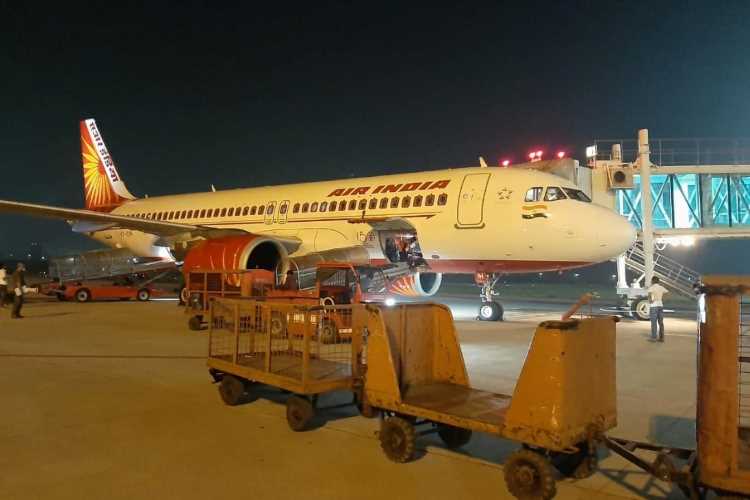There is an outcry in Kerala over the death of expats from the state in the Gulf countries due to Covid-19. At least 300 people from the state have lost their lives to the pandemic in Gulf Cooperation Council countries. The opposition parties have put the Pinarayi Vijayan government on the mat over its perceived inability to bring back more than 2,50,000 people waiting to return to the state.
According Norka roots website of the Kerala government, 4 million, around 10.5% of Kerala’s population, are emigrants, of which around 2.8 million (80%) are in GCC countries. Around 70% (2.8 million) of Kerala emigrants are in GCC countries. They constitute 27% of 10.41 million Indian diaspora in the region. Keralities constitute roughly 23% of the total Indian emigrants/immigrants. According to the UN Migration Report 2019, 17.5 million Indians live abroad, constituting the largest diaspora in the world.
A total of 98,202 people returned to Kerala which is more than a third (35%) of the total Indians returned from various destinations through the Vande Bharat Mission flights and chartered flights (2,80,000) till June 25. Till mid-June, 5,13,047 Indians have registered with Indian Embassies across the world to return home, of which 3,64,209 have already been brought back. The Vande Bharat mission was launched in May by the Union government to bring back stranded Indians from different parts of the world due to the new coronavirus pandemic. India had given permission to 870 chartered flights till June 15, bringing back 20,000 stranded Indians. Among this, Kerala was the destination of 568 chartered flights (65%), according to the DGCA data. The Chief Minister’s office say Kerala government has permitted 1,159 flights from May 3.
READ I COVID-19: Why home quarantine may work in Kerala, not in other states
The opposition parties led by the Congress and gulf migrants associations blame that the Kerala government is blocking their entry during the pandemic to protect its record of low number of infections and deaths due to Covid-19. While they allege that the state hasn’t done enough to evacuate people, the data shared by the Union government tells a different story. The data from ministry of external affairs (MEA) on Vande Bharat Mission says nearly a fourth (24%) of all VBM flights landed in Kerala. This means Kerala, which accounts for 23% of the total emigrants from India, got a proportionate number of the evacuation flights. The state also received nearly half (46%) of total flights including VBM and chartered flights.
When it comes to the VBM flights from the Gulf region, it is a different story altogether. Of the 629 VBM flights originating from the Gulf region, 338 landed in one of the four international airports in Kerala — which is 54% of the total. This is apart from the chartered flights that ferried several Keralites who constitute just 27% of the Indian diaspora in the region.
Emigration from Kerala to GCC countries show a declining trend in the last 10 years, with Keralites opting to immigrate to other countries. According to the emigration clearance data of MEA, a quarter of all labourers who migrated from India since 2010 is from Uttar Pradesh. Even though emigration clearance data represent only the unskilled labour category, the number is quite high. Four Indian states — Uttar Pradesh, Bihar, Rajasthan and West Bengal — accounted for almost two thirds (65%) of total emigration clearance between 2017 and 2019. They emigrate mainly to GCC countries especially to the UAE and Saudi Arabia. Unskilled labourers from Kerala constitute just 5% of total Indian unskilled migrants across the globe. So, it is the skilled and professionally qualified Keralites who got the opportunity to return home at the cost of the rest of the Indians residing in GCC countries.
It is possible that many states such as Uttar Pradesh, Bihar, Andhra Pradesh, West Bengal, Tamil Nadu, Telangana and Karnataka did not permit too many flights from abroad. They may not have taken the initiative with the MEA to facilitate the return of people. The Kerala government constantly engaged with the MEA and succeeded in facilitating the return of both stranded people as well as people facing emergencies.
READ I Kerala’s Covid-19 response: First person account by a visiting non-resident Malayali
By trying to corner the state government and putting it on the defensive, the opposition parties may have lost an opportunity to take up the issues of Indian immigrants with the Union government. Keralites are not the only ones to face job losses, salary cuts and health emergencies. The problem must be more pronounced for the unskilled immigrants from states such as Uttar Pradesh, Bihar, West Bengal.
The entire debate brings to the fore the role that the media played during the crisis. The media amplified the allegations made by the opposition parties without doing their homework and without following good journalistic practices. And the issue was further amplified by the echo chambers of social media. This campaign has shaken the confidence of the general public and created panic among migrants waiting to return. The needless controversy could have a telling effect on the public health machinery of the state that is stretched by the pandemic and fatigue.
(Dr Resmi Bhaskaran is a development economist based in Manipal, Karnataka. The views are personal.)

